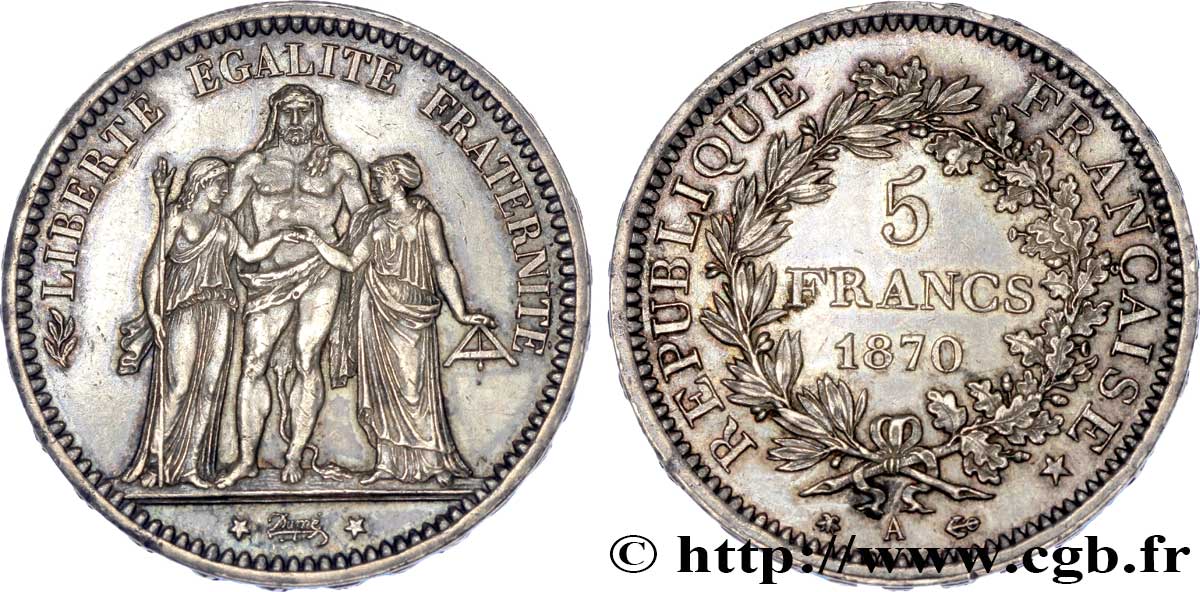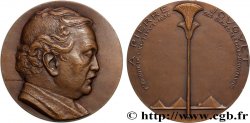v60_0301 - 5 francs Hercule 1870 Paris F.334/1
MONNAIES 60 (2013)
Starting price : 800.00 €
Estimate : 1 200.00 €
Realised price : 945.00 €
Number of bids : 2
Maximum bid : 945.00 €
Starting price : 800.00 €
Estimate : 1 200.00 €
Realised price : 945.00 €
Number of bids : 2
Maximum bid : 945.00 €
Type : 5 francs Hercule
Date: 1870
Mint name / Town : Paris
Quantity minted : 119.731
Metal : silver
Millesimal fineness : 900 ‰
Diameter : 37,33 mm
Orientation dies : 6 h.
Weight : 24,99 g.
Edge : en relief : *****DIEU*PROTEGE*LA*FRANCE
Rarity : R2
Coments on the condition:
Magnifique patine de médaillier avec des reflets mordorés. État de conservation exceptionnel au droit où tous les détails des trois personnages sont bien sortis, les visages, les mains et les pieds. Petites marques de manipulation visibles seulement à la loupe x10
Catalogue references :
Predigree :
Cet exemplaire provient de la vente Argenor du 13 avril 2005, lot n° 770
Obverse
Obverse legend : (RAMEAU) LIBERTÉ ÉGALITÉ FRATERNITÉ.
Obverse description : Hercule barbu demi-nu, debout de face avec la léonté, sur son épaule gauche une patte du lion, sur son bras et autour de sa taille la peau du lion de Némée, derrière ses jambes queue et pattes du lion, unissant la Liberté debout à gauche tournée à droite tenant une pique surmontée d'une main de Justice, vêtue d'un peplos et l'Égalité debout à droite tournée à gauche, tenant le niveau, vêtue d'un chiton : à l'exergue, Dupré en cursif entre deux étoiles.
Reverse
Reverse legend : RÉPUBLIQUE FRANÇAISE*.
Reverse description : 5 / FRANCS, en deux lignes au-dessus de 1870, le tout contenu dans une couronne composée à gauche d'une branche de laurier, à droite d'une branche de chêne, nouées à leur base par un ruban ; au-dessous du nœud la lettre d'atelier A encadrée des différents.
Commentary
Les frappes antérieures à 1872 se distinguent des suivantes par l’absence de point après le mot FRANCS.








 Report a mistake
Report a mistake Print the page
Print the page Share my selection
Share my selection Ask a question
Ask a question Consign / sell
Consign / sell
 Full data
Full data









